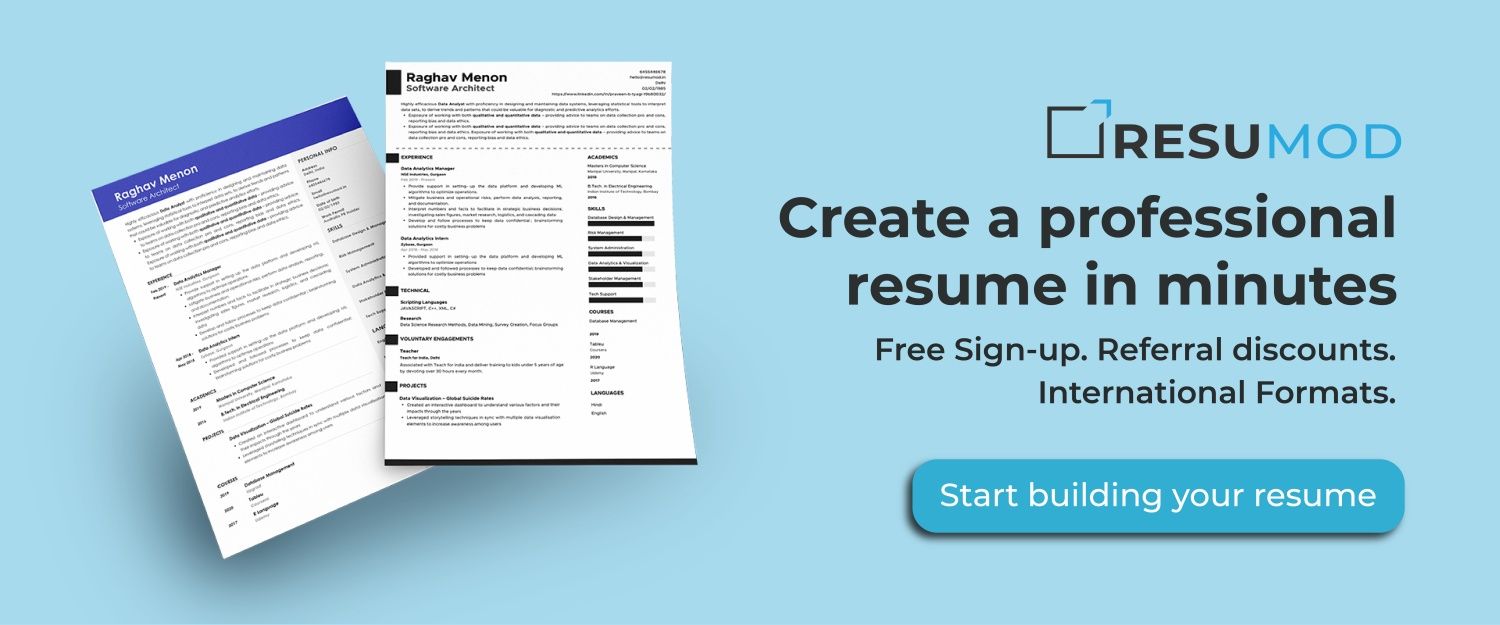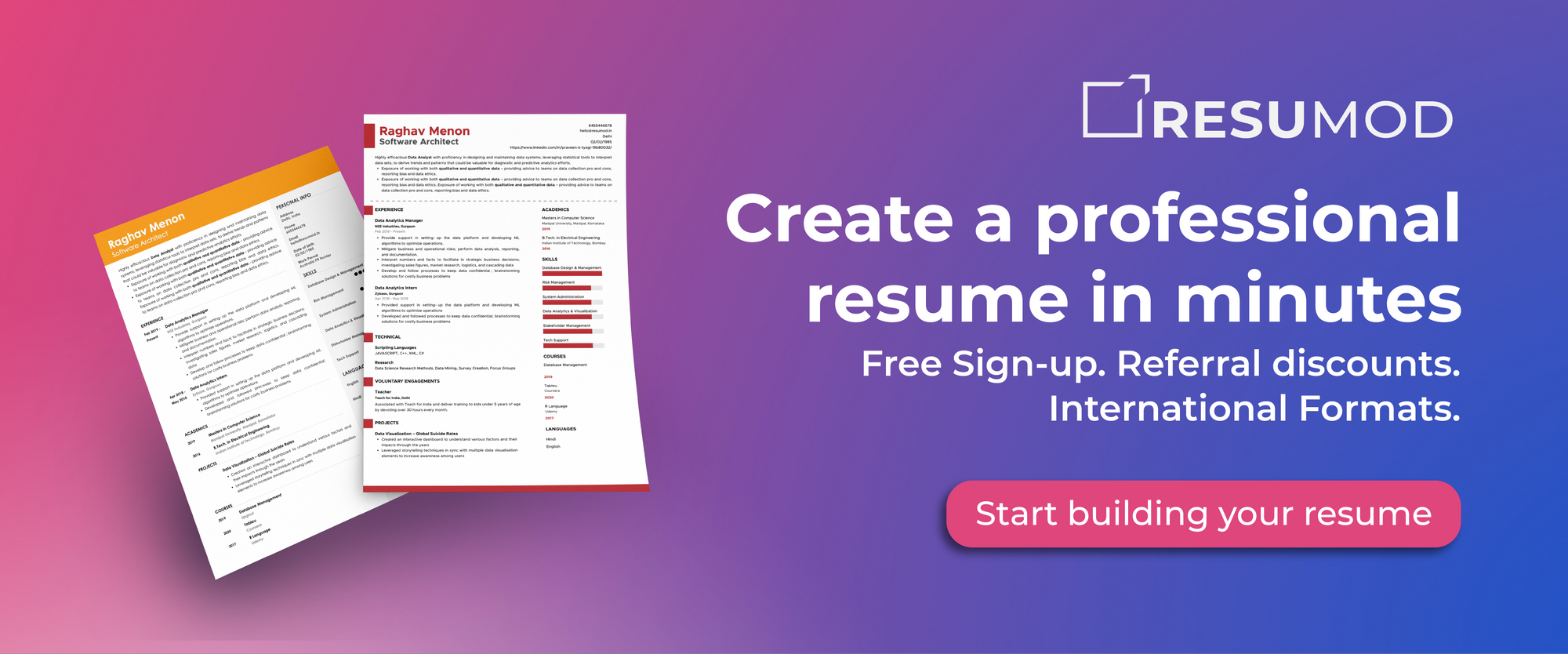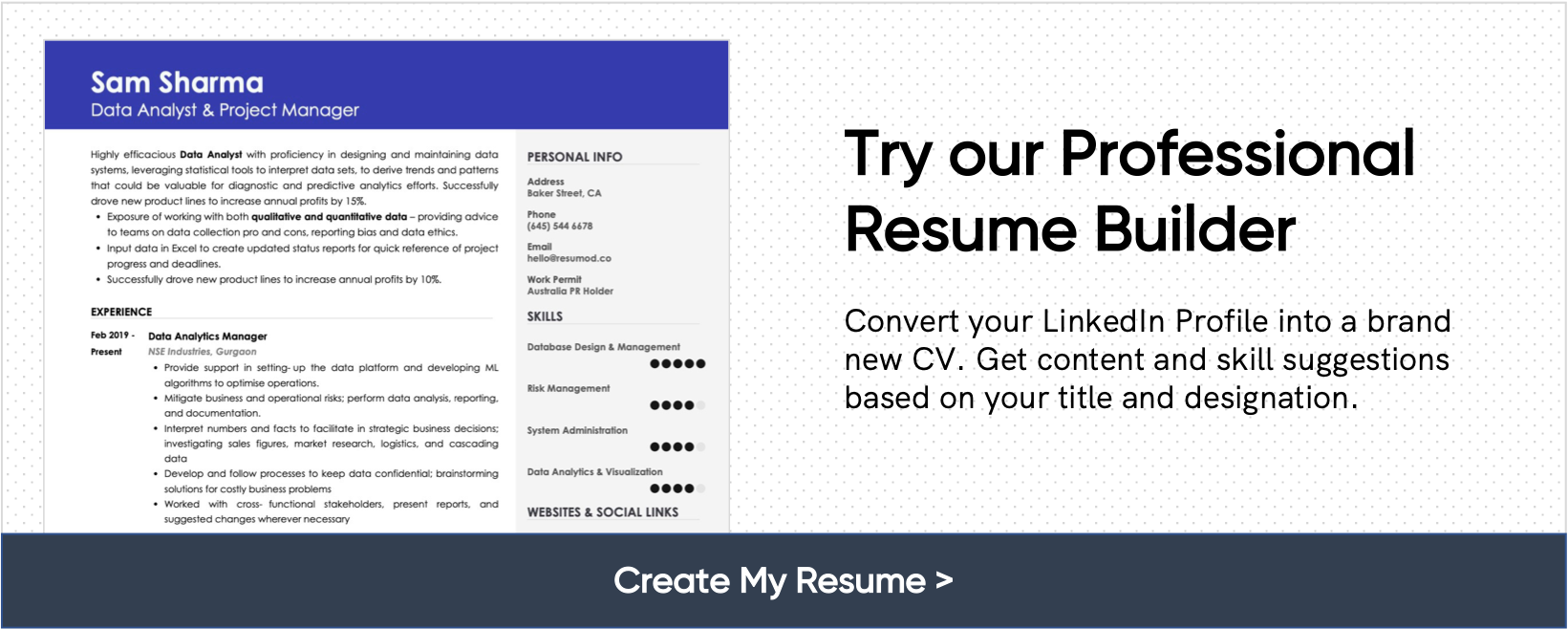How to become a Data Analyst in 2024: A Guide
Data analytics offers the promise of high earning potential and positions you at the forefront of decision-making processes, empowering companies to steer the complexities of the modern business landscape.
As per the US Bureau of Labor Statistics, the employment of data professionals is projected to jump 25% by the year 2030, implying data analytics has one of the highest growth rates.
Here we present you a roadmap to a rewarding career in data analytics. We meticulously unpack the essentials—from initiating your journey to mastering the specific skills employers seek in Data Analysts. Data analytics offers the promise of high earning potential and positions you at the forefront of decision-making processes, empowering companies to steer the complexities of the modern business landscape.
So get ready to unlock the power of data.
- Who is a data analyst?
- What does a data analyst do?
- What is the state of the data analytics industry in 2024?
- How to become a data analyst?
- Can anyone become a data analyst without any experience?
- Average salary of a data analyst in India
- Data analyst skillset

Who is a Data Analyst?
A data analyst is a professional who collects, cleans, analyses, and communicates insights from data. They work in numerous industries, helping organizations make informed decisions based on evidence. Their responsibilities are:
- Data Gathering and Cleaning: Data analysts collect information from sources like surveys, website records, financial data, or scientific experiments. They clean and organize the data, which ensures its accuracy and completeness before further analysis.
- Data Analysis and Pattern Identification: Using statistical methods, programming languages, and data visualization tools, analysts explore and analyse the data. They search for patterns, trends, and anomalies, which reveal hidden connections and insights within the information.
- Insight Communication and Reporting: A crucial skill for data analysts is translating complex findings into clear, concise, and actionable insights that stakeholders can understand and use. This involves creating reports, presentations, and dashboards that clearly communicate the data’s story.
- Problem-Solving and Performance Optimization: Data analysts use data to solve problems and improve processes in various contexts. It involves analysing customer behaviour to optimize marketing campaigns, identifying fraudulent transactions in financial systems, or predicting equipment failures for better maintenance schedules.
What does a data analyst do?
A data analyst collects and reviews large amounts of data from a numerous source for their employers. They translate this data into information that companies use to guide and motivate business decisions. Data analysts specializes in operations, marketing, financial, or other types of data, depending on the industry they are in and their employers' requests. Some responsibilities of data analysts include:
- Assessing questions their clients ask and determining which types of data can answer them
- Use data analysis and statistical modelling software applications to identify trends and patterns
- Convert numbers, figures, and other types of data into narratives that answer questions
- Preparing graphs, diagrams, and reports to share findings with stakeholders
State of the data analytics in 2024
If you're considering a career in data analysis, 2024 presents an exciting landscape full of opportunities. The demand for data analysts is skyrocketing as businesses and organizations increasingly rely on data to drive their decisions. This surge in demand is further fuelled by the rapid growth of the data market and the rise of artificial intelligence (AI) technologies, making data analysis a promising and highly sought-after career path in 2024 and beyond.
Are data analysts in demand in 2024?
When considering a career as a data analyst, it is essential to think about the wider context in which you will be working. Today a large amount of data is generated all the time – data that is interesting for businesses and organizations as it tells them something about how we behave in relation to their products or services. As we rely on digital devices and services, the more data we generate—and, in turn, the more essential it becomes for companies to analyse this data.
The data skills shortage
The data market is huge and by 2025 it is estimated to be around $229.4 billion. The data market is growing exponentially and there is a need for data analysts.
In the World Economic Forum’s Jobs of Tomorrow report which was published in 2020, data and AI are identified as one of seven high-growth emerging professions. Of all seven professions identified, data and AI show the highest growth rate at 41% per year. However today there are not enough data experts to meet this need; as per a recent study, employers expect data science and analytics to be one of the most challenging areas to recruit for after cybersecurity.
The advent of the age of AI
The generative AI explosion happened and large language models (LLMs) led by Open AI’s ChatGPT, promised to revolutionise things. The possible applications of these spread far and wide, and demand grew immediately for professionals who were equipped to understand them. We can say it was the year of the machine learning engineer, a data pro who is skilled at planning and manipulating LLMs and harnessing the power of generative AI for businesses. Now there is a huge demand for open ML engineer positions on job portals.
Data analysts are very much in demand in 2024 and will continue to be for the foreseeable future.
How to become a data analyst?
To get into a good organization, hiring managers look for a bachelor's degree, professional certifications, some related work experience, and essential technical skills for the job role. The requirements to pursue a career as a data analyst:
Get an education
Companies require data analysts to have a bachelor's degree in a relevant field so they possess adequate technical knowledge and skills. Specialists in this field may also pursue a master's degree to increase their earning potential. Majors for data analysts include:
- Computer science: It prepares candidates for high-level analysis and equips them with basic computer programming skills. Most programs include classes on algorithms, operating systems, software engineering, and computer architecture.
- Math: It is ideal for students who want to learn the basics of problem-solving, mathematical modelling, and data analysis. Many math programs specialize in business or engineering and comprise courses on discrete math, differential equations, and complex analysis.
- Statistics: It can help students develop a strong foundation in data analysis, computing, and probability. It also allows students to specialize in data analysis, and they include classes on statistical learning, data technology, and numerical analysis.
Learn key computer languages
To analyse data effectively, it's essential to understand key computer programming languages like Hadoop, JavaScript, Python, SQL, and XML. Learn these languages in your undergraduate program or by taking online classes. If you have an interest in applying for a particular position as a data analyst, then review the employer's expectations to ensure you understand the programming languages the company uses or take online courses to learn the language and qualify for the role.
Gain relevant work experience
To get some entry-level experience in data analysis, consider looking for an internship that can help you with practical experience and allow you to network with experts in the field. This will help you gain a better understanding of your prospective role and help you identify any areas where you may need additional training before you begin your career.
Pursue on-the-job training
Most data analysts have prior experience working in the data industry, usually from internships while still in school. So, if you have some hands-on experience, it can make on-the-job training much easier. While training, consider asking senior data analysts for their advice or guidance to help you gain a better understanding of your role and responsibilities.
Earn certifications
Having a certification may from the software vendor that makes the programs they use may benefit you. Earn a professional certification as it demonstrates a mastery of the skills required to use the software and shows a commitment to the profession. You can get certification from:
- Cloudera Certified Associate: It shows a high-level understanding of Structured Query Language (SQL), Hadoop, and data analysis and needs to pass an exam.
- INFORMS Certified Analytics Professional: Demonstrates a well-rounded understanding of data analysis and requires a bachelor's degree, five years of relevant work experience, an exam, a professional reference, and an agreement to adhere to a code of ethics.
- MapR Certified Data Analyst: Shows competence with Apache tools and SQL and requires passing an exam.
- Microsoft Certified Solutions Expert: Shows competence with SQL and business intelligence and requires passing three exams.
Can Anyone Become a Data Analyst Without Any Experience?
The field of Data Analyst is about applying computational, analysis, and statistics and not just computer science. This field focuses on working with large datasets and the production of useful insights that help in solving real-life issues. The whole process begins with a hypothesis that needs to be answered and then gathering new data to test those hypotheses.
There are 2 major categories of Data Analysts: Tech and Non-Tech. Both work on different tools and Tech domain professionals are needed to possess knowledge of required programming languages like R or Python. The working professional should be thorough with statistics so that they can present any given amount of raw data in a well-aligned structure.
Anyone can become a Data Analyst if they are equipped to work on real-life problems, are good with statistics, and always think out of the box.
Average salary of a Data Analyst in India
The average salary of a data analyst in India with different experience is listed below:
Freshers (Less than 1 Year): Foundational skills in data analysis tools, SQL, and basic statistics
- Average Salary: ₹3.25 Lakhs per annum (LPA)
- Range: ₹2.5 LPA – ₹4 LPA
Early Career (1-4 Years): Refining analytical skills, gaining work experience on real-world projects, and exploring specific data analysis techniques.
- Average Salary: ₹4.94 LPA
- Range: ₹4 LPA – ₹6 LPA
Mid-Career (5-9 Years): Specializing in specific areas like Machine Learning, Big Data, or industry-specific analysis.
- Average Salary: ₹7.75 LPA
- Range: ₹6 LPA – ₹10 LPA
Late Career (10-19 Years): Led complex data analysis projects, mentoring junior analysts, and provided strategic insights to stakeholders.
- Average Salary: ₹10.63 LPA
- Range: ₹8 LPA – ₹15 LPA
Experienced (20+ Years): Senior leadership roles, managing large teams, and driving data-driven initiatives across the organization.
Average Salary: ₹15 Lakhs and above
Develop Your Data Analyst Skillset
The right skillset is essential to becoming a data analyst and make sure you have the following hard skills and soft skills:
Technical Skills
- Programming and querying languages: To process data and make it easy for others, analysts use various programming and querying languages. It is essential to be familiar with the commonly used languages and understand how they function.
- Statistical analysis and math skills: Data analysts work with numbers a lot; so develop strong math skills and be comfortable analysing data sets.
- Microsoft Excel: MS Excel is a go-to tool for data analysts and is easy to use.
- Machine learning: As a data analyst, you need to be familiar with machine learning and understand how it works.
- Data visualization: A good data analyst can produce meaningful insights and present those findings visually in their most understandable form.
Soft Skills
- Analytical thinking: Data analysis involves collecting raw data and refining it into meaningful information. They analyse the data to uncover truth and it can only be done through analytical thinking.
- Problem-solving skills: Good problem-solving skills help data analysts understand the nature of the problem, the best data analysis tools, and techniques to solve the problem, and the solution itself.
- Presentation skills: Data analysts must present their insights in a way that everyone including the non-technical stakeholders can understand.
- Communication and interpersonal skills: Data analysts interact with a variety of different people, including colleagues and coworkers, managers, and subject matter experts. Strong communication and interpersonal skills can help facilitate collaboration among different parties.
Top Rated Resumes on Resumod of Data Analyst
Resume of Data Analyst

Check the full resume of data analyst in text format here.
Resume of Building Information Manager

Check the full resume of building information manager in text format here.
Resume of Data Analysis Intern

Check the full resume of data analysis intern in text format here.
Resume of Data Annotator

Check the full resume of data annotator in text format here.
Resume of Internet of Things (IoT) Solutions Architect

Check the full resume of Internet of Things (IoT) solutions architect in text format here.
Resume of Data Scientist

Check the full resume of data scientist in text format here.
Resume of Blockchain Engineer

Check the full resume of blockchain engineer in text format here.
Resume of Big Data Engineer

Check the full resume of big data engineer in text format here.
Resume of Product Manager - Data & Analytics

Check the full resume of product manager - data & analytics in text format here.
Resume of Data Modeler

Check the full resume of data modeler in text format here.
If you’re ready to start exploring your career as a data analyst, build job-ready skills in less than six months by earning a Data Analytics Professional Certificate. Learn to clean, organize, analyse, visualize, and present data from data professionals at reputed websites. With the roadmap shared above, network with the experts online and discuss how they can accomplish their goal of becoming a data analyst and what their starting experience.



